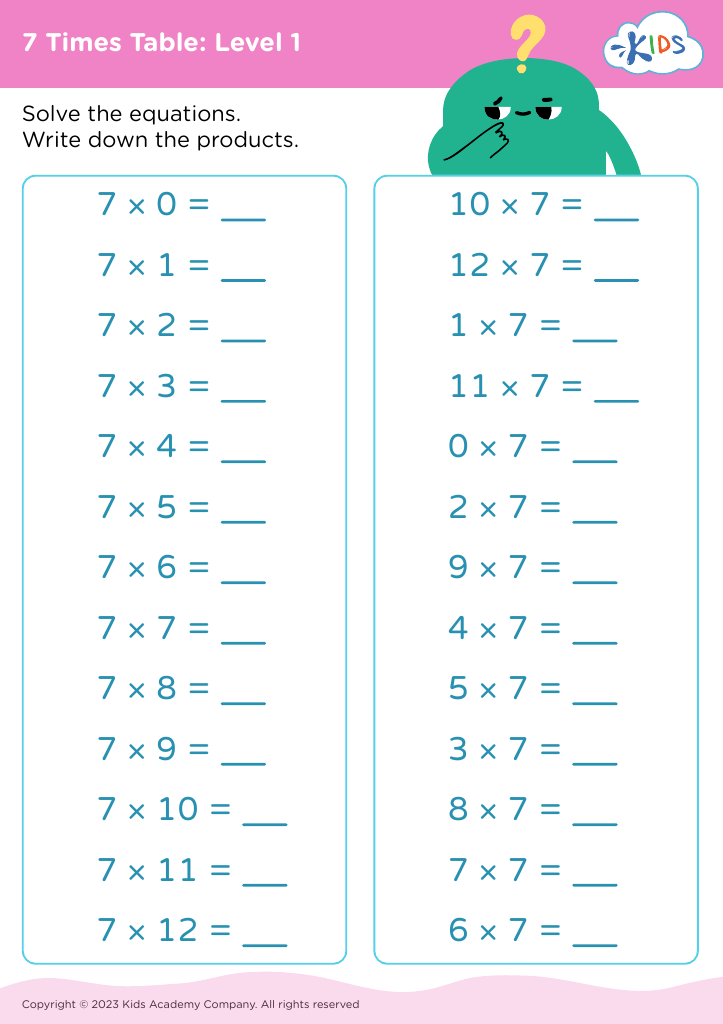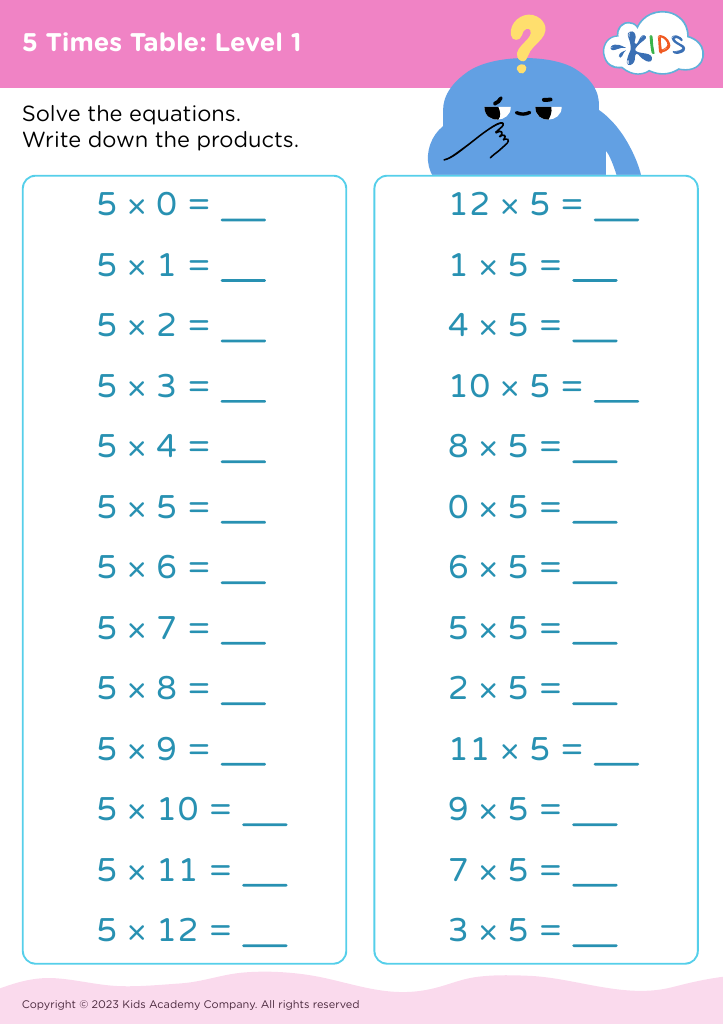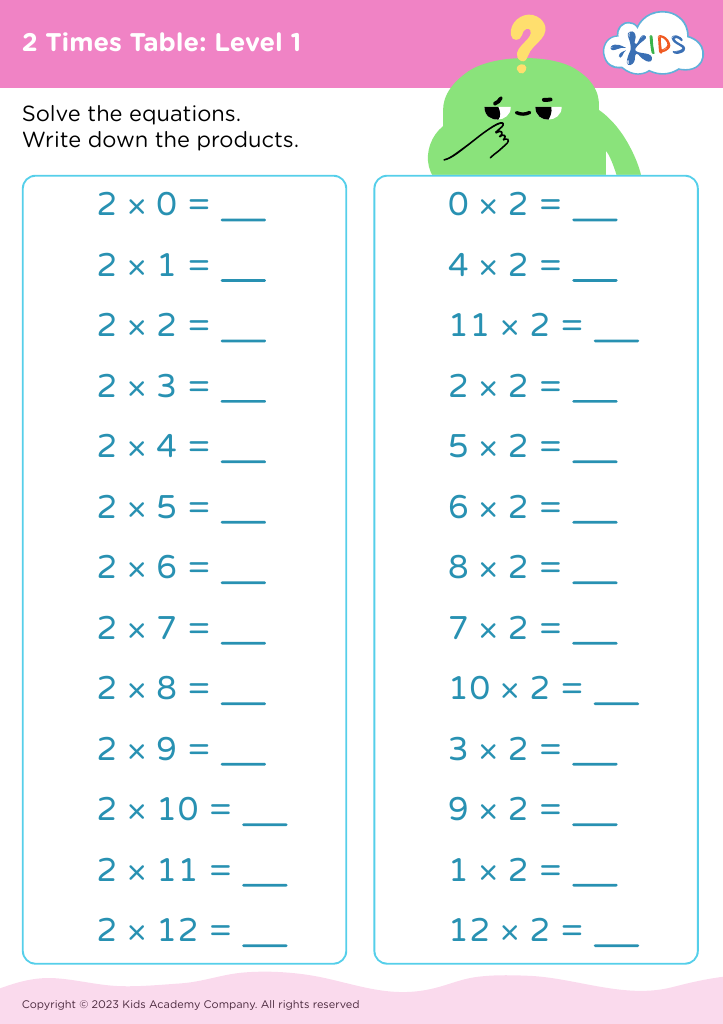Understanding times tables Easy Worksheets for Ages 8-9
3 filtered results
-
From - To
Welcome to our "Understanding Times Tables Easy Worksheets" designed specifically for children ages 8-9! These engaging worksheets provide a fun and effective way for young learners to grasp multiplication concepts. Featuring colorful illustrations and clear, simple instructions, these resources help to reinforce times table understanding through practice and repetition. With a variety of exercises—from traditional multiplication problems to interactive games—these worksheets cater to different learning styles, ensuring that each child can succeed. Boost your child’s confidence in math and set the foundation for more advanced skills with our downloadable, ready-to-use worksheets. Start their multiplication journey today!
Understanding times tables is crucial for children aged 8-9 as it lays the foundation for future math learning and problem-solving skills. Mastering times tables helps children build fluency in multiplication, enabling them to tackle more complex math concepts such as division, fractions, and algebra as they advance in their education.
For parents and teachers, emphasizing the importance of times tables develops not just mathematical skills but also fosters confidence in children. When kids can effortlessly recall multiplication facts, they’re more likely to participate actively in classroom discussions and group activities, reducing anxiety associated with math subjects.
Additionally, expertise in times tables enhances everyday life skills. Children use multiplication in real-world situations, such as calculating prices, measuring ingredients, or managing time. This practical application makes math more engaging and relevant, inspiring children to appreciate the subject instead of viewing it as a chore.
Furthermore, a strong foundation in times tables sets the stage for positive attitudes toward learning. When children experience success, it boosts their motivation and cultivates a growth mindset. In summary, understanding times tables is important for academic achievement and helps build essential life skills, making it a priority for both parents and teachers.










.jpg)








